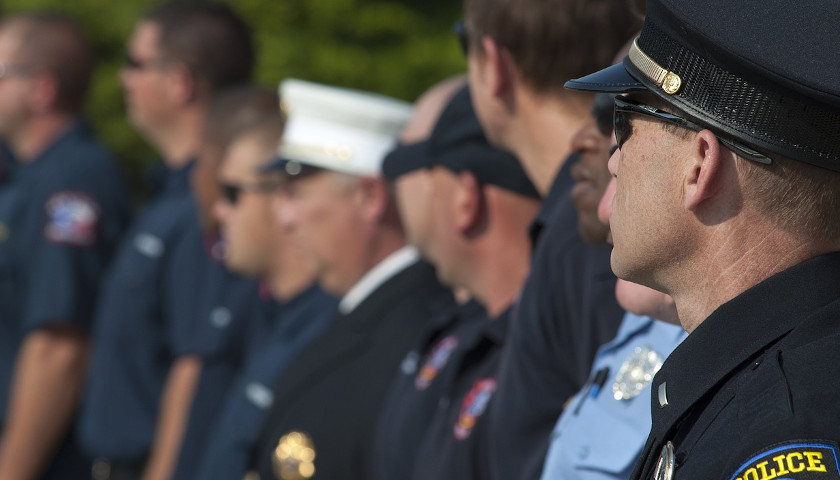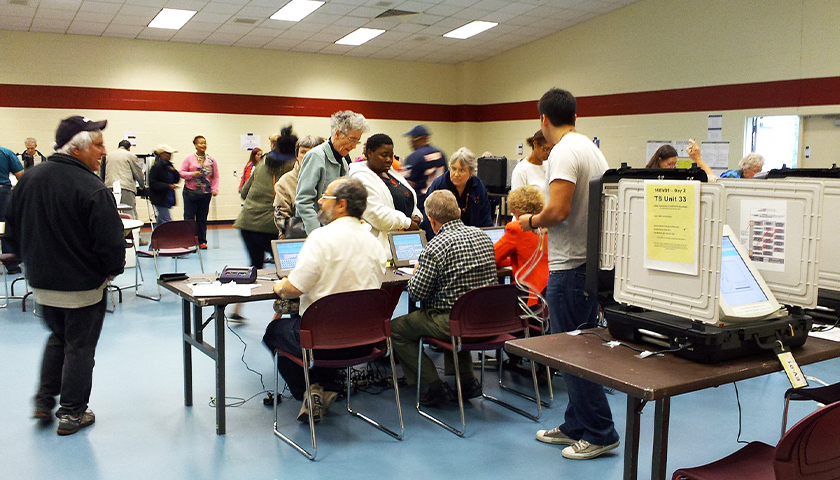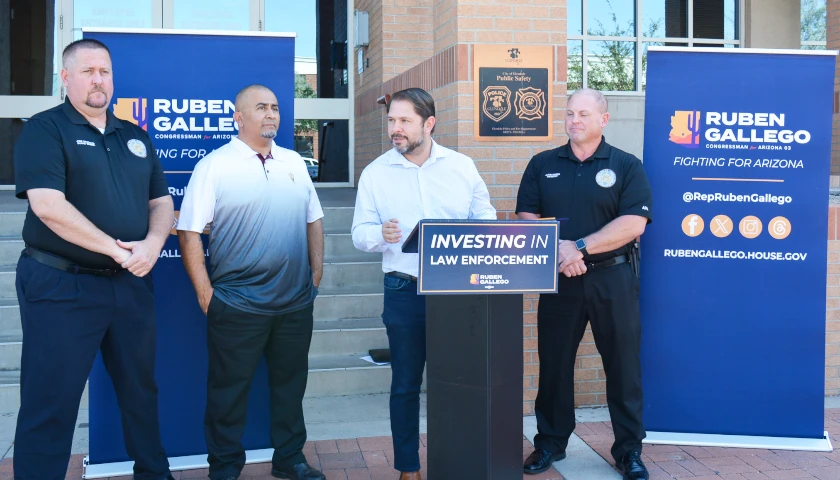by Thomas Catenacci
There is a disparity between how Americans view policing countrywide and how they view policing in their own communities, a national poll found.
Seventy-seven percent of respondents said they approved of how their local police did their job, according to the Quinnipiac poll released Wednesday. Debate over police reform has been heating up in the wake of the death of George Floyd, who died in Minneapolis police custody May 25 after an officer knelt on his neck, video showed. Floyd’s death has been the catalyst for protests and riots across the country.
 In contrast, 49% of respondents approved of the way police are doing their jobs in the United States as a whole.
In contrast, 49% of respondents approved of the way police are doing their jobs in the United States as a whole.
“Voters give higher marks to police in their own communities,” according to Quinnipiac’s introductory comments.
Both figures, approval of local police and approval of police nationally, represent significant changes since the last time Quinnipiac surveyed Americans on these topics. Eighty-four percent of respondents said they approved of their community’s police in October 2016. Meanwhile, 65% of respondents approved of how police do their jobs in the United States in April 2018.
Democrats proposed legislation that would ban chokeholds and create a national registry of police officers on June 8. Republicans responded with a bill of their own that calls for more police body camera funding, among other provisions Wednesday.
There is also a move to defund, or even abolish, police departments across the country. The Minneapolis City Council voted to dismantle its police department June 12.
The Quinnipiac poll also showed disparities in the way white and black respondents view policing, both nationwide and locally.
Just 20% of black respondents said they approved of how police do their job in the United States compared to 57% of white respondents. When it comes to community policing, 52% of black respondents approved while 83% of white respondents approved.
The Quinnipiac poll surveyed 1,332 Americans between June 11 and June 15. The poll’s margin of error was +/-2.7 percentage points.
– – –
Thomas Catenacci is a reporter for the Daily Caller News Foundation.





